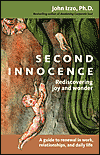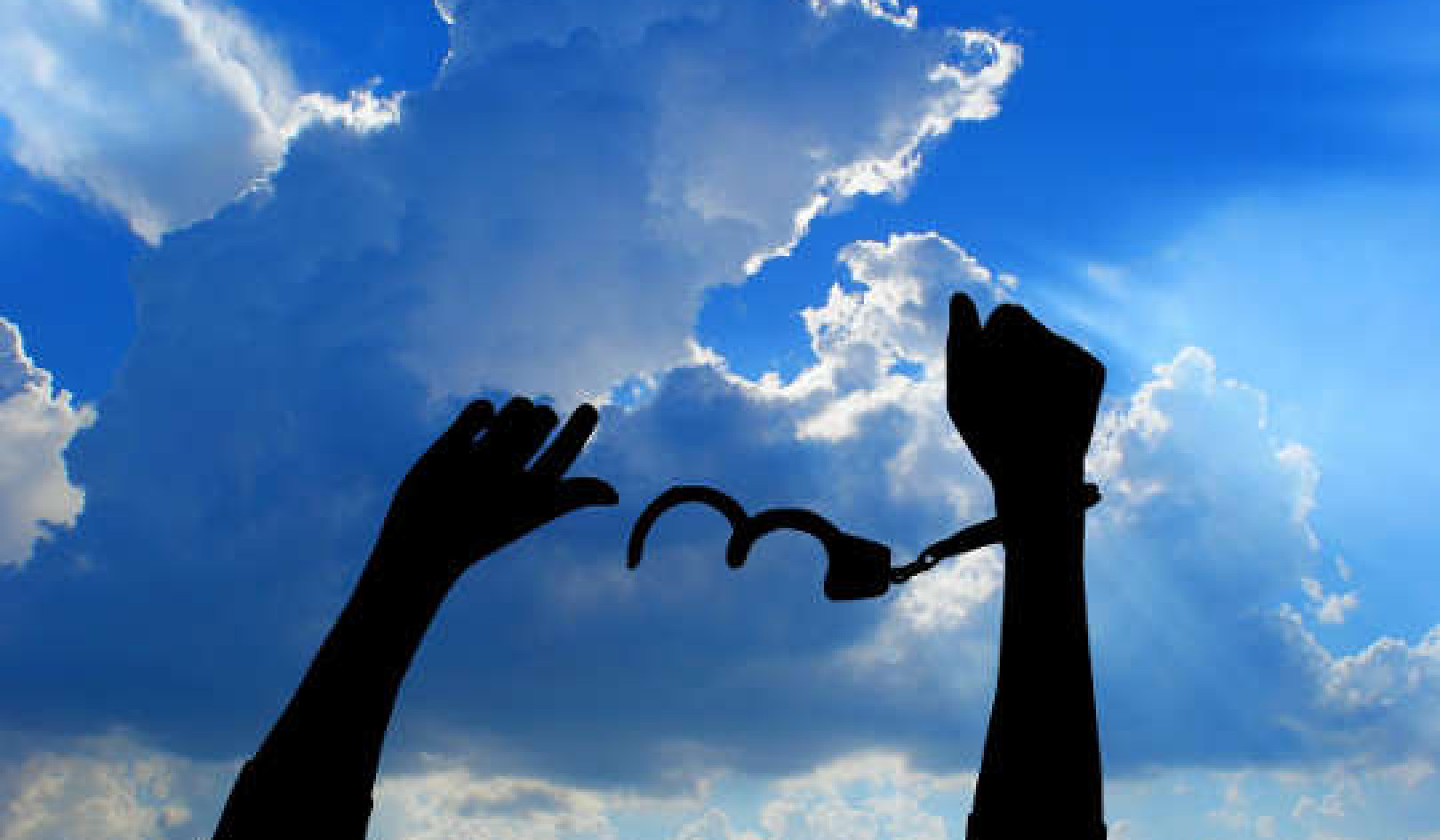
As my daughter voraciously read through the Harry Potter books, it occurred to me that innocence has much to do with two simple words: awe and wonder. Children seem able to find this wonder in the simplest of things -- an unusual bug on the sidewalk, a puddle that is particularly deep, a small paper airplane.
As we age, somehow our capacity for awe and wonder is diminished, just as our skin loses its elasticity. Years of smiling (or frowning) create lines in the face that at some point defy erasing or even cosmetic injections. In the same way, it is possible to create wrinkle lines in the soul that diminish our capacity to embrace the moments of wonder that animate life so wonderfully.
Recapturing The Experience Of Wonder
So how do we recapture the experience of wonder? We begin by remembering those moments when we have had such experiences, when the wonder of life touched us, not in our conscious, linear mind, but in some deeper place. For many of us, nature is one of the best sources of rekindling this sense of wonder -- yet we have so little of it in our lives, trapped as we are by habit and necessity in offices and schools. For me, these mystical moments in touch with nature are the things I remember most about being alive.
Earlier this year we moved into a new house. Our old home was like a tree house, nestled in a cedar forest, overlooking the sea and mountains from the vantage point of the birds. In our new home we are much closer to the water. We had been there for a few weeks and it was summer; the nights were very warm, so we were sleeping with the windows wide open. One night, I woke up and could not get back to sleep. There was a sound outside my window that was unfamiliar to me, a sound like people walking over gravel. There are railroad tracks behind our house, so my mind wondered who might be walking on the tracks at 3 A.M. and for some time I lay there listening until I could not help but look.
Going over to the window I sat down and gazed out into the night, but there was no one on the tracks. Yet the sound continued. It took me a while, but I figured out that what I was hearing was the sound of small waves lapping against the shoreline 50 yards from our house. With the sound of the waves lapping, I saw that it was a perfectly clear night, hundreds of stars dancing in the crisp air, with the mountains on the other side of the sound a more solid contrast.
For an hour, I simply sat on the floor looking out my window and listening to the waves. Now and then, it occurred to me that I would be tired in the morning, but I did not want this moment to end. Finally, I went back to bed and slept the sleep of the contented. The next night I tried again for this feeling of awe but couldn't hear the waves and went to back to bed. And as I lay quietly, eyes closed, that moment of awe and wonder returned. It had not left me. I can recapture the innocence of the moment whenever I wish.
Since so many of my times of wonder and those of others mentioned to me have been connected to nature, it seems that spending more time in the natural world, even briefly, can profoundly animate our days.
But can awe and wonder carry us through the harsher realities of life? Will these moments carry me forward when death and suffering surround me? Are moments of wonder enough?
Breaking Through the Hard Stuff
Most of John's life had been spent outdoors, hiking in wilderness and living adventurously. Now, in his 50s, he had been lying for six weeks in a hospital bed, dying of brain cancer. Friends and family were on a 24-hour deathwatch, taking turns at his bedside so that when the time came -- and it would come soon -- someone he loved would be there.
His friend Bryan did not like to see him lying there, staring at the sterile walls of his hospital room; he knew it must have been withering his soul to have stopped having the "moments." So one day he asked John if he wanted to go outside. John's face lit up. Of course he would like to go outside.
It took some doing, but Bryan convinced the nurses to use a small crane to move him from bed and get him into a wheelchair. After zipping John inside a sleeping bag, off went the pair in a taxi equipped for the disabled, heading to the mountains just north of the city. As they arrived in the mountains, it began to rain. It was not a gentle rain, but an all-out gully washer, the kind of downpour for which Vancouver is famous.
Standing at the side of the taxi, my friend Bryan held the umbrella over the wheelchair, looking down at his friend whose mind was still present, but whose body was quickly leaving him. Bryan asked: "John, it's not a very good day. Are you sure you want to do this?"
After a moment's pause, John replied, "Bryan, it would be a very good day, a very good day indeed, if you would just put that umbrella down for a few moments and let that rain fall on my face."
Reluctantly Bryan folded the umbrella and his friend turned his face up to the sky, the tactile feeling of the great outdoors once again (and literally) washing over him. His face broke into a broad smile. It was indeed a good day.
Awe And Wonder Have A Way Of Breaking Through
Do you remember when rain was not something to shield yourself from? As a young child I remember coming home from elementary school one day in a pouring rainstorm. To this day I can recall the feeling of being drenched by the warm rain, splashing in every puddle until I was soaking wet, smiling every step of the way home as claps of thunder ignited our path. Long before the message about catching one's "death of cold" or "being practical" had sunk in, rain was something to be felt and experienced.
At some point, rain became something else: the cancellation of the picnic, the end of the baseball game, a nuisance. Rain -- the very thing that brings life to the planet -- ceased to be an experience of wonder and became something simply to be endured.
Even in the face of the harshest truth, awe and wonder have a way of breaking through. In fact, sometimes it takes a cancer, an illness, a wake-up call, to remind us of what we knew as children: that rain can be sweet and gentle, that life is there waiting for us at those moments when we choose to be -- as e. e. cummings wrote -- "glad and young" again.
Being Awake and Present so Awe and Wonder Can Break Through
In his book Living Buddha, Living Christ, Thich Nhat Hanh writes:
"If I am ever in an airplane and the pilot announces that our plane is about to crash, I will practice mindful breathing and take refuge in the island of the self. I know it is the best thing I can do."
I fly a good deal and have thought about that same question: What would I do? Breathing and mindfulness are very important, for only when we are awake and present can awe and wonder break through and remind us of what our hearts already know.
Yet if I am ever in that moment or something like it, when I know my seconds are few and running out fast, I believe I would try to remember those moments of awe and wonder -- the wind that will blow forever, the stream that was rushing over my hand, the night the waves and stars joined together in a symphony outside my window, the day Steve and I were surrounded by the gloriously setting sun, the feeling of raindrops hitting my face in a Puerto Rican rain forest. I will hope that in remembering those moments, my innocent faith will speak to me of the things my mind cannot know.
Cultivating Awe and Wonder
How do we cultivate the experience of awe and wonder in our lives? It begins by keeping our eyes open, by being willing to stop in the middle of "important" stuff to breathe in the "little things." So perhaps awe and wonder are not things to behold but a posture we take, a choice to see the mystery that is alive in the universe.
One day, when my daughter Sydney was very young she interrupted me as I worked on a client report in my home office. She came to tell me "there is a beautiful and amazing bug just outside on the driveway. She is red and black and spotted. You must come see this bug."
Busy writing my report, I told her that the bug would have to wait. "Perhaps it'll be there when I'm done," I added. Sydney frowned but was undaunted.
"No, daddy," she said, "bugs do not wait for us."
Awakened by her native wisdom, I joined her and we went down the long driveway to view the brightly colored caterpillar. Sure enough, the bug was amazing -- black, red, spotted all over. For a few minutes, she and I shared in the absolute delight that God, evolution, or something greater than us had created such a lovely creature. Years later, I cannot recall a word from the report, nor even what report I was working on, but if I close my eyes I can still see that beautiful bug!
One does not have to live near the sea or in the mountains, have the perfect job or perfect spouse, to find this awe and wonder. We simply need to keep our eyes and senses open.
And yes, innocence and joy are almost always waiting just outside that window.
Reprinted with permission of the publisher,
Berrett-Koehler Publishers, Inc.
©2004. www.bkconnection.com
Article Source:
Second Innocence: Rediscovering Joy and Wonder: A Guide to Renewal in Work, Relationships, and Daily Life
by John B. Izzo.
 In the spirit of Robert Fulghum and Garrison Keillor, Izzo shows that while love may disappoint, work may not satisfy, and suffering will occur, we can still transform ourselves by applying intentional focus to finding the wonder in the world and staying focused on what really matters.
In the spirit of Robert Fulghum and Garrison Keillor, Izzo shows that while love may disappoint, work may not satisfy, and suffering will occur, we can still transform ourselves by applying intentional focus to finding the wonder in the world and staying focused on what really matters.
Click here for more info and/or to order this book. Also available as a Kindle edition
About the Author
 Dr. Izzo has served on the faculties of two major universities. His opinions, research, and expertise have been widely published and featured in media including Fast Company, CNN, Wisdom Network, Canada- AM, ABC World News, The Wall Street Journal, The New York Times, The Globe and Mail, and the National Post. His clients include Kaiser Permanente, Mayo Clinic, Fairmont Hotels, Astra Zeneca, Coca-Cola, Hewlett-Packard, IBM, Toys R Us, Verizon, Duke Energy, and the Department of National Defense. Visit his website at http://www.drjohnizzo.com/
Dr. Izzo has served on the faculties of two major universities. His opinions, research, and expertise have been widely published and featured in media including Fast Company, CNN, Wisdom Network, Canada- AM, ABC World News, The Wall Street Journal, The New York Times, The Globe and Mail, and the National Post. His clients include Kaiser Permanente, Mayo Clinic, Fairmont Hotels, Astra Zeneca, Coca-Cola, Hewlett-Packard, IBM, Toys R Us, Verizon, Duke Energy, and the Department of National Defense. Visit his website at http://www.drjohnizzo.com/





























